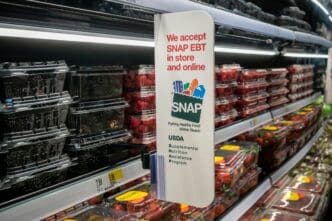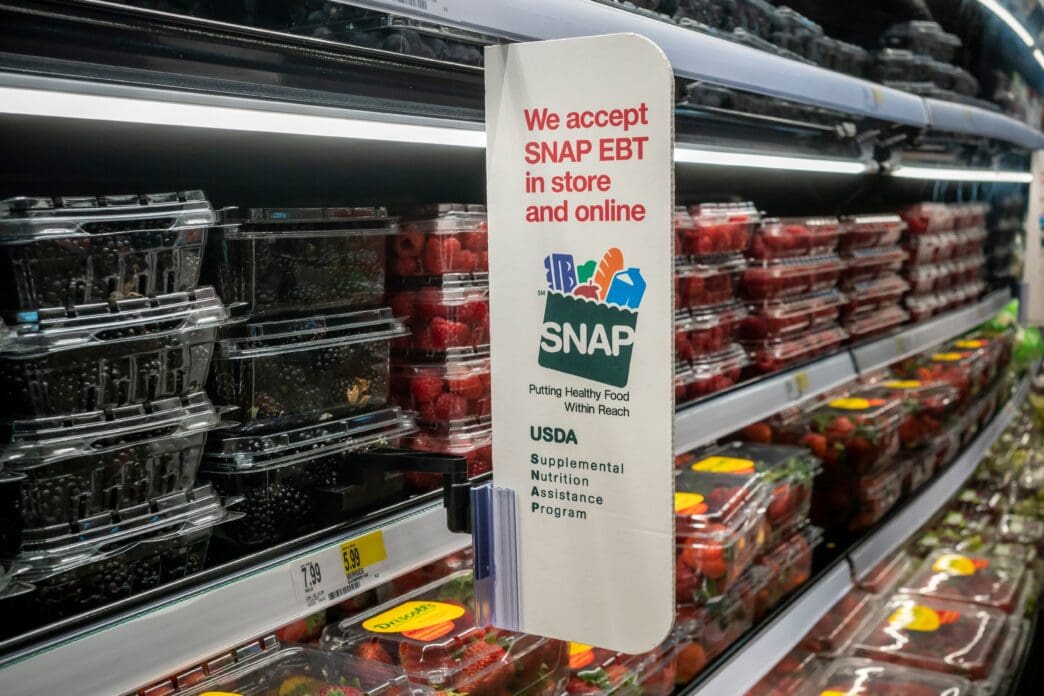Executive Summary
The Story So Far
Why This Matters
Who Thinks What?
A federal judge in Boston indicated Thursday that she plans to intervene in a legal challenge concerning the Trump administration’s decision to withhold billions of dollars in emergency funds intended to cover food stamp benefits for millions of Americans in November.
US District Judge Indira Talwani expressed difficulty understanding why the current situation, where Supplemental Nutrition Assistance Program (SNAP) benefits are at risk due to a lack of funds, does not constitute an emergency, especially given Congress had allocated money to an emergency fund for such circumstances.
While the judge’s specific course of action remains to be decided, one possibility is an emergency order compelling the administration to utilize these funds. Judge Talwani acknowledged that despite a favorable ruling for the Democratic attorneys general and governors who brought the lawsuit, benefits scheduled to begin on November 1 would likely be delayed.
Nearly 42 million Americans rely on SNAP, a crucial component of the nation’s safety net, with the program costing approximately $8.5 billion to $9 billion monthly. Court filings from the Justice Department indicate the contingency fund currently holds about $5.3 billion.
Should the court mandate the use of emergency funds, the US Department of Agriculture (USDA) and individual states would require time to reactivate their systems. This operational delay suggests that many beneficiaries may still experience a wait for their November allotments.
Furthermore, it remains uncertain whether recipients would receive their full November benefits, as the USDA’s contingency fund does not entirely cover the total monthly cost without drawing from other sources. The Trump administration has previously reallocated funds for other priorities during the shutdown, including $300 million to sustain the WIC food assistance program for October.
USDA’s Shifting Stance and Legal Arguments
The core of Thursday’s hearing focused on the discrepancy between the contingency fund’s balance and the total amount required for November benefits. Judge Talwani emphasized that federal law mandates a reduction in benefits, not a complete suspension, when the government is unable to provide full payments, stating Congress intended to protect the American people.
A coalition of Democratic attorneys general and governors from 25 states and Washington, D.C., filed a lawsuit against the administration earlier this week. They argued that the USDA’s refusal to tap into the contingency fund violates federal law requiring consistent funding for the program and contravenes federal rulemaking laws.
The USDA had initially indicated in its shutdown contingency plan that the emergency fund could be used for benefits, noting that “Congressional intent is evident that SNAP’s operations should continue.” However, the agency reversed this position, informing states on October 10 that insufficient funds were available for full November payments and later stating that “contingency funds are not legally available to cover regular benefits.”
This situation marks a rare instance where SNAP benefits have been at significant risk during a government shutdown. While the program faced uncertainty during the 2018-2019 impasse, a workaround was ultimately found, and benefits were not suspended.
Impact of Delays
States ceased the process of issuing November benefits following a directive from the USDA on October 10. Each state operates on a specific timeline for submitting enrollee information to vendors to load funds onto benefit cards, with payments staggered throughout the month.
During the hearing, an attorney for Massachusetts indicated that states would be responsible for determining how to reduce payments based on available federal funds. However, a Justice Department lawyer representing the Trump administration expressed significant concern regarding the agency’s capacity to undertake such a complex task.
Outlook
The judge’s indication to intervene sets the stage for a critical legal decision impacting millions of Americans relying on food assistance. While a ruling favorable to the plaintiffs could compel the use of emergency funds, it is expected that November benefits will still face delays, and the extent of those payments remains uncertain given the fund’s current balance.








